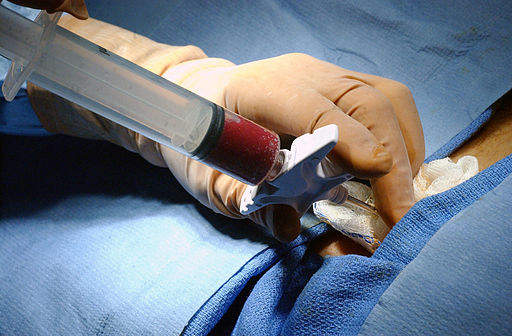
Results from an international trial have demonstrated the efficacy of stem cell transplants in halting the spread of multiple sclerosis (MS) and improving its symptoms.
It is the first international trial to investigate autologous haematopoietic stem cell transplantation (AHSCT) as a treatment for MS.

Discover B2B Marketing That Performs
Combine business intelligence and editorial excellence to reach engaged professionals across 36 leading media platforms.
A total of 110 patients took part in the MIST trial, which used cancer drugs to shut down a patient’s immune system before rebuilding it using a stem cell transplant, taking stem cells from the subject’s blood and bone marrow that were unaffected by the disease. These cells were frozen and the subject was given a high dose of chemotherapy, after which they had their stem cells thawed and then re-infused into their blood.
Subjects took part in hospitals in Chicago in the US, Sheffield in the UK, Uppsala in Sweden, and Sao Paulo in Brazil. All had relapsing remitting MS, defined as when attacks or relapses are followed by periods of remission.
Patients received either HSCT or drug treatment. After a year, the stem cell group reported one relapse compared with 39 in the drug group. After a follow-up of around three years, the transplants were shown to have failed in three out of 52 patients (6%), compared with 30 of 50 in the control group (60%). No patient in the transplant arm reported any adverse side effects.
Subjects who received the transplant treatment reported a reduction in disability, while those in the drug arm of the study reported worsening symptoms. Disability was measured using the Expanded Disability Status Scale (EDSS), against which patients were assessed to see if their disease had improved, progressed or remained the same. The EDSS score of subjects in the transplantation arm improved from an average of 3.5 to 2.4. By comparison, those in the drug arm declined from an average score of 3.3 to 3.9.

US Tariffs are shifting - will you react or anticipate?
Don’t let policy changes catch you off guard. Stay proactive with real-time data and expert analysis.
By GlobalDataMS Society director of research Dr Susan Kohlhaas, said the stem cell transplant HSCT ‘will soon be recognised as an established treatment in England – and when that happens our priority will be making sure those who could benefit can actually get it’.
At around £30,000, the transplant is roughly the same cost as the annual price of some MS drugs. However, despite the positive results, researchers have warned that the process is not suitable for all patients due to its requirement for chemotherapy and an isolation period of several weeks.
NIHR Sheffield Biomedical Research Centre principal investigator and co-investigator of the MIST study Professor Basil Sharrack said: “We are very excited by these hugely encouraging findings, which are the first to assess the long-term effectiveness of AHSCT in people with the active relapsing remitting form of the disease in a phase III randomised trial.
“In the study, almost all patients receiving autologous haematopoietic stem cell transplantation showed no signs of their disease being active a year on from having the treatment and more importantly, their level of disability improved significantly. It is also really important to emphasise that these are still early days, and the patients will be followed for five years.”
Initial results from the trial were announced at the European Society for Bone and Marrow Transplantation annual meeting, held in Lisbon.
MS is a demyelinating disease that can affect the brain and spinal cord, resulting in difficulties with vision, coordination, sensation and balance. It currently affects around 100,000 people in the UK.





